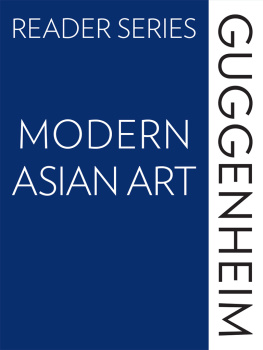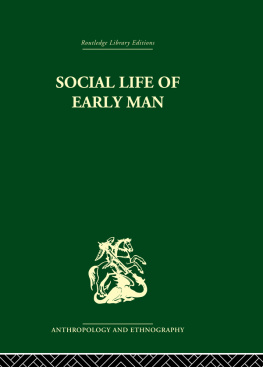Edward Washburn Hopkins - The Religions of India
Here you can read online Edward Washburn Hopkins - The Religions of India full text of the book (entire story) in english for free. Download pdf and epub, get meaning, cover and reviews about this ebook. year: 2012, publisher: Andrews UK, genre: Religion. Description of the work, (preface) as well as reviews are available. Best literature library LitArk.com created for fans of good reading and offers a wide selection of genres:
Romance novel
Science fiction
Adventure
Detective
Science
History
Home and family
Prose
Art
Politics
Computer
Non-fiction
Religion
Business
Children
Humor
Choose a favorite category and find really read worthwhile books. Enjoy immersion in the world of imagination, feel the emotions of the characters or learn something new for yourself, make an fascinating discovery.

- Book:The Religions of India
- Author:
- Publisher:Andrews UK
- Genre:
- Year:2012
- Rating:5 / 5
- Favourites:Add to favourites
- Your mark:
- 100
- 1
- 2
- 3
- 4
- 5
The Religions of India: summary, description and annotation
We offer to read an annotation, description, summary or preface (depends on what the author of the book "The Religions of India" wrote himself). If you haven't found the necessary information about the book — write in the comments, we will try to find it.
The Religions of India — read online for free the complete book (whole text) full work
Below is the text of the book, divided by pages. System saving the place of the last page read, allows you to conveniently read the book "The Religions of India" online for free, without having to search again every time where you left off. Put a bookmark, and you can go to the page where you finished reading at any time.
Font size:
Interval:
Bookmark:
THE RELIGIONS OF INDIA
BY EDWARD WASHBURN HOPKINS
Ph.D. (LEIPSIC)
PROFESSOR OF SANSKRIT AND COMPARATIVE PHILOLOGY IN BRYN MAWR COLLEGE
"This holy mystery I declare unto you: There is nothing nobler than humanity."
THE MAH[=A]BH[=A]RATA.
This edited version, including layout, typography, additions to text, cover artwork and other unique factors is copyright 2012 Andrews UK Limited
This book is sold subject to the condition that it shall not, by way of trade or otherwise, be lent, resold, hired out or otherwise circulated without the publishers prior written consent in any form of binding or cover other than that in which it is published, and without a similar condition being imposed on the subsequent purchaser.
TO THE MEMORY OF
WILLIAM DWIGHT WHITNEY
THIS VOLUME
IS AFFECTIONATELY DEDICATED
BY THE AUTHOR
PREFATORY NOTE
BY THE EDITOR.
The growing interest both in this country and abroad in the historical study of religions is one of the noticeable features in the intellectual phases of the past decades. The more general indications of this interest may be seen in such foundations as the Hibbert and Gifford Lectureships in England, and the recent organization of an American committee to arrange in various cities for lectures on the history of religions, in the establishment of a special department for the subject at the University of Paris, in the organization of the Muse Guimet at Paris, in the publication of a journal - the Revue de l'Histoire des Religions - under the auspices of this Museum, and in the creation of chairs at the Collge de France, at the Universities of Holland, and in this country at Cornell University and the University of Chicago,[1] with the prospect of others to follow in the near future. For the more special indications we must turn to the splendid labors of a large array of scholars toiling in the various departments of ancient culture - India, Babylonia, Assyria, Egypt, Palestine, Arabia, Phoenicia, China, Greece, and Rome - with the result of securing a firm basis for the study of the religions flourishing in those countries - a result due mainly to the discovery of fresh sources and to the increase of the latter brought about by exploration and incessant research. The detailed study of the facts of religion everywhere, both in primitive society and in advancing civilization, and the emphasis laid upon gathering and understanding these facts prior to making one's deductions, has succeeded in setting aside the speculations and generalizations that until the beginning of this century paraded under the name of "Philosophy of Religion."
Such has been the scholarly activity displayed and the fertility resulting, that it seems both desirable and timely to focus, as it were, the array of facts connected with the religions of the ancient world in such a manner that the summary resulting may serve as the point of departure for further investigations.
This has been the leading thought which has suggested the series of Handbooks on the History of Religions. The treatment of the religions included in the series differs from previous attempts in the aim to bring together the ascertained results of scholarship rather than to make an additional contribution, though the character of the scholars whose coperation has beep secured justifies the hope that their productions will also mark an advance in the interpretation of the subject assigned to each. In accord with this general aim, mere discussion has been limited to a minimum, while the chief stress has been laid upon the clear and full presentation of the data connected with each religion.
A uniform plan has been drawn up by the editor for the order of treatment in the various volumes, by following which it is hoped that the continuous character of the series will be secured.
In this plan the needs of the general reader, as well as those of the student, for whom, in the first place, the series is designed, have been kept in view. After the introduction, which in the case of each volume is to be devoted to a setting forth of the sources and the method of study, a chapter follows on the land and the people, presenting those ethnographical and geographical considerations, together with a brief historical sketch of the people in question, so essential to an understanding of intellectual and religious life everywhere.
In the third section, which may be denominated the kernel of the book, the subdivisions and order of presentation necessarily vary, the division into periods being best adapted to one religion, the geographical order for another, the grouping of themes in a logical sequence for a third; but in every case, the range covered will be the same, namely, the beliefs, including the pantheon, the relation to the gods, views of life and death, the rites - both the official ones and the popular customs - the religious literature and architecture. A fourth section will furnish a general estimate of the religion, its history, and the relation it bears to others. Each volume will conclude with a full bibliography, index, and necessary maps, with illustrations introduced into the text as called for. The Editor has been fortunate in securing the services of distinguished specialists whose past labors and thorough understanding of the plan and purpose of the series furnish a guarantee for the successful execution of their task.
It is the hope of the Editor to produce in this way a series of manuals that may serve as text-books for the historical study of religions in our universities and seminaries. In addition to supplying this want, the arrangement of the manuals will, it is expected, meet the requirements of reliable reference-books for ascertaining the present status of our knowledge of the religions of antiquity, while the popular manner of presentation, which it will be the aim of the writers to carry out, justifies the hope that the general reader will find the volumes no less attractive and interesting.
UNIVERSITY OF PENNSYLVANIA.
* * * * *
FOOTNOTES:
[Footnote 1: In an article by the writer published in the Biblical World (University of Chicago Press) for January, 1893, there will be found an account of the present status of the Historical Study of Religions in this country.]
CHAPTER I. - INTRODUCTION.
SOURCES. - DATES. - METHODS OF INTERPRETATION. - DIVISIONS OF SUBJECT.
SOURCES.
India always has been a land of religions. In the earliest Vedic literature are found not only hymns in praise of the accepted gods, but also doubts in regard to the worth of these gods; the beginnings of a new religion incorporated into the earliest records of the old. And later, when, about 300 B.C, Megasthenes was in India, the descendants of those first theosophists are still discussing, albeit in more modern fashion, the questions that lie at the root of all religion. "Of the philosophers, those that are most estimable he terms Brahmans ([Greek: brachmanas]). These discuss with many words concerning death. For they regard death as being, for the wise, a birth into real life - into the happy life. And in many things they hold the same opinions with the Greeks: saying that the universe was begotten and will be destroyed, and that the world is a sphere, which the god who made and owns it pervades throughout; that there are different beginnings of all things, but water is the beginning of world-making, while, in addition to the four elements, there is, as fifth, a kind of nature, whence came the sky and the stars.... And concerning the seed of things and the soul they have much to say also, whereby they weave in myths, just as does Plato, in regard to the soul's immortality, judgment in hell, and such things."[1]
And as India conspicuously is a country of creeds, so is its literature preminently priestly and religious. From the first Veda to the last Pur[=a]na, religion forms either the subject-matter of the most important works, or, as in the case of the epics,[2] the basis of didactic excursions and sectarian interpolations, which impart to worldly themes a tone peculiarly theological. History and oratory are unknown in Indian literature. The early poetry consists of hymns and religious poems; the early prose, of liturgies, linguistics, "law," theology, sacred legends and other works, all of which are intended to supplement the knowledge of the Veda, to explain ceremonies, or to inculcate religious principles. At a later date, formal grammar and systems of philosophy, fables and commentaries are added to the prose; epics, secular lyric, drama, the Pur[=a]nas and such writings to the poetry. But in all this great mass, till that time which Mller has called the Renaissance - that is to say, till after the Hindus were come into close contact with foreign nations, notably the Greek, from which has been borrowed, perhaps, the classical Hindu drama,[3] - there is no real literature that was not religious originally, or, at least, so apt for priestly use as to become chiefly moral and theosophic; while the most popular works of modern times are sectarian tracts, Pur[=]nas, Tantras and remodelled worldly poetry. The sources, then, from which is to be drawn the knowledge of Hindu religions are the best possible - the original texts. The information furnished by foreigners, from the times of Ktesias and Megasthenes to that of Mandelslo, is considerable; but one is warranted in assuming that what little in it is novel is inaccurate, since otherwise the information would have been furnished by the Hindus themselves; and that, conversely, an outsider's statements, although presumably correct, often may give an inexact impression through lack of completeness; as when - to take an example that one can control - Ktesias tells half the truth in regard to ordeals. His account is true, but he gives no notion of the number or elaborate character of these interesting ceremonies.
Next pageFont size:
Interval:
Bookmark:
Similar books «The Religions of India»
Look at similar books to The Religions of India. We have selected literature similar in name and meaning in the hope of providing readers with more options to find new, interesting, not yet read works.
Discussion, reviews of the book The Religions of India and just readers' own opinions. Leave your comments, write what you think about the work, its meaning or the main characters. Specify what exactly you liked and what you didn't like, and why you think so.









